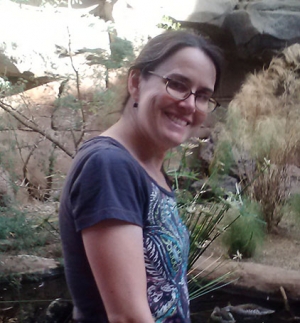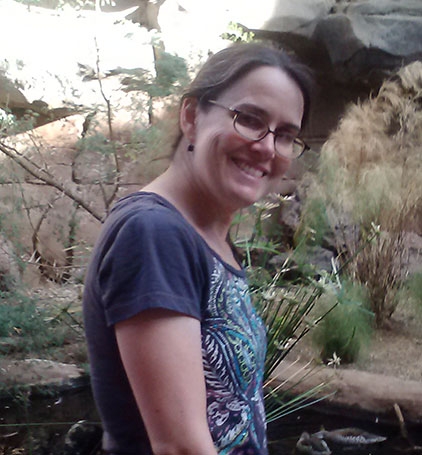Why did you become a biologist (and specifically the type of biologist you are)?
I was drawn to developmental biology because it ties together much of what we know from multiple subdisciplines including cell biology, molecular biology, genetics, anatomy, histology, and of course "old school" descriptive embryology, which is what the field was before it incorporated modern molecular biology techniques. Pulling all of those subjects into one discipline means you can draw upon many resources when you're trying to solve the mystery of how embryos work. It allows you to tackle a specific question from multiple perspectives, which can be a very satisfying way to get an answer.
When did you know this was your career choice (Discuss the process through which you ended up choosing this as a career.)?
My career path wasn't particularly straight-forward. As an undergrad, I majored in anthropology and focused fairly seriously on evolutionary biology and paleontology. I nearly completed a PhD in anthropology (human evolution). However, in addition to my "official" research, I was reading journal articles in which amazing discoveries in developmental biology were being reported, seemingly every week. I simply became more and more enamored and decided to become a developmental biologist. To prepare, I changed my major to cell biology, so that I could learn basic bench skills, especially how to formulate testable hypotheses and design experiments. After graduating, I went to a developmental biology lab as a postdoctoral researcher and finally began studying embryos at the bench. It's hard to pinpoint when I knew this was my career choice, but I would say I knew for sure the first time I looked at an embryo through the microscope to see the results of a difficult experiment and saw the beautiful answer.
Who or what is your inspiration?
When I sit through a seminar in which the science is strong, and the story is compelling, or when I read a ground-breaking journal article, I think "wow, I want to be a scientist!" Then, I remind myself that I already am one and I go back to work with an extra spring in my step. I'm also inspired by contemplating the embryo and figuring out the next question to ask. The really tough questions can be inspiring, especially when you have to invent a new method or devise a new piece of equipment in order to solve it. It's like biology throws down a gauntlet, and you have to rise to the challenge.
If you had to do it again, what would you be?
I would definitely be a developmental biologist.
What courses do you currently teach?
Molecular Biology lab and Human Systems Physiology lab. I'll be lecturing in Human Systems Physiology soon, and will also be teaching the 1801 biology core class for majors.
Are you planning to teach any new courses in the near future?
I'm planning a course that will combine histology with a strong mix of cell biology. It will probably be called Microscopic Structure and Function.
What do you like most about teaching?
I like teaching lab-based classes because they are so interactive. Unexpected things can go wrong and you have to solve problems on the fly. Mundane examples are a tube breaking in the centrifuge or someone accidentally prepping their samples with DNA ladder instead of loading dye. Everyone gets excited! But more important, the students experience the unpredictable side of lab research, where things can and do go wrong. There is usually a solution and it's great when the students do some trouble-shooting and suggest possibilities.
What is the overarching goal of your research program?
My main focus is on the endodermal germ layer that gives rise to the digestive tract and associated organs such as the pancreas and liver. The big goal is to continue refining our picture of how this germ layer gets patterned in space and time as development proceeds. We'd like to have a detailed understanding of how signaling pathways and genetic interactions are regulated to ultimately build functional organs such as the pancreas.
What advice do you have for undergraduates/graduates pursuing degrees in biology these days (or advice on how to be a successful student at App State?)
I would advise them to read the archived Spotlight answers from other faculty. There are definitely pearls of wisdom there. To add to what has already been said, I would advise students to make time to read beyond textbooks. The textbook is just the tip of the iceberg for any field. Reading the primary literature and review articles is important for getting a deeper understanding. Also, I highly recommend reading non-fiction books that are written for a general audience or for educated non-specialists. These are often very well written and hugely inspiring. A great example is "The Immortal Life of Henrietta Lacks" by Rebecca Skloot.

